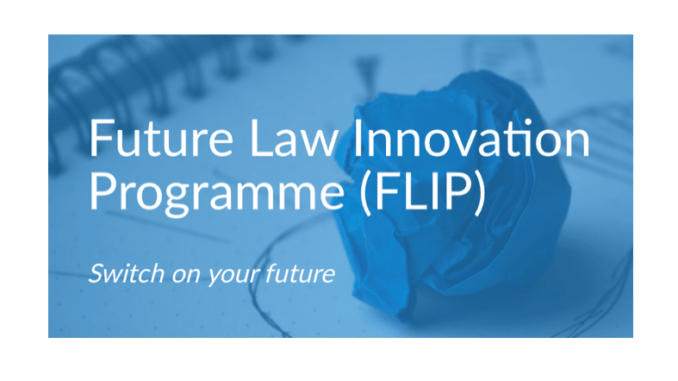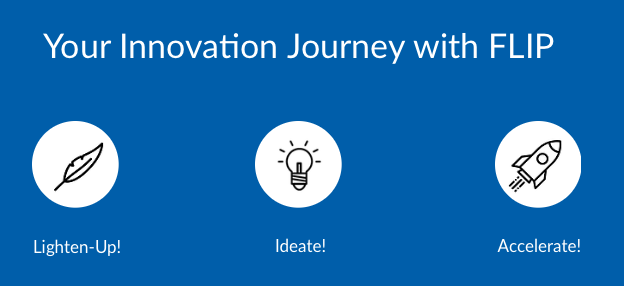
Singapore’s Academy of Law has launched a Future Law Innovation Programme (FLIP), to promote the adoption and development of legal tech, including the use of AI, in the key South East Asian legal market.
Noemie Alintissar, FLIP Manager, tells Artificial Lawyer, that after launching earlier this year the programme is seeking to widen the level of participation among lawyers and other stakeholders, while driving the creation of new start-ups and higher levels of legal tech adoption in the city state.
Alintissar explains that FLIP seeks ‘to incubate new models of delivering legal services’ in Singapore in recognition that the global legal market is changing and lawyers there need to both adapt to new technology and see the opportunities it holds.

Singapore is one of Asia’s leading legal centres, with a considerable reputation as a dispute resolution and arbitration centre. Its stable government and rule of law, as well as its key geographical position, has also made it an important transactional hub for international law firms.
In which case, FLIP is an important development that will hopefully help to spread the adoption of new ideas and technology, including it is hoped the use of AI, in a key Asian legal centre.
It is also interesting to note that just yesterday one of Singapore’s leading law firms, WongPartnership announced a deal with legal AI company, Luminance, to use its doc review system for M&A due diligence. This suggests that Singapore is already moving ahead with AI adoption and this step will help reinforce FLIP’s message to the local legal community.
Alintissar says that FLIP has four main aims:
- Assisting law firms integrating baseline technology into their processes
- Building capacity to innovate the business model for the future law firm
- Catalysing innovation across the legal industry in Singapore
- Organising and developing Singapore’s LegalTech community
One of the most exciting aspects of this project is the accelerator programme, the first legal tech progamme of this type in Asia.
The main objectives are to ‘groom promising legal tech start-ups and to incubate new business models or services conceived by law firms’.
It will also ‘look to link promising legal tech start-ups with law firms, the general counsel community, technology leaders and curated investors’.
In effect FLIP will both seek to encourage legal tech start-ups to grow, help find them funding, and then connect them with lawyers and clients that can make use of these applications.

And, the programme is also now growing its online content and community site, which is seeking to link people and start-ups together, and to direct lawyers to existing technology.
Alintissar adds that the overall aim is to ‘lighten the back-end’ of the innovation process, effectively doing the leg work for all those interested in innovation by providing the facilities and support, whether informational or financial, to drive change and development in Singapore’s legal market.
Paul Neo, COO/CFO of the Singapore Academy of Law, says that the programme was not expecting to go from a relatively modest level of tech adoption in Singapore to market-wide AI use overnight. Though, the news about the WongPartnership deal may help in that respect in terms of inspiring others to explore the use of AI.
‘We have set a baseline, we will then move up the legal tech pyramid,’ Neo says. This will eventually lead to AI applications.
Neo explains that at present the important thing is to build up knowledge and awareness in the legal community in Singapore about what legal tech can do and how firms can utilise it. I.e. firms that are still very ‘manual’ in their approach to legal data are not going to be able to make a move to high levels of automation and AI analysis in one go.
That said, this comprehensive programme looks likely to trigger higher levels of interest in new technology. The WongPartnership AI deal also shows that there is a receptive audience now for even the most advanced legal tech, so, there is everything to play for.
Moreover, one could argue that it is essential that Singapore’s law firms keep up to speed with AI and other technology. After all, many of the US, UK and Australian law firms operating in South East Asia are making use of AI in a variety of contexts. India is busy building its own legal AI community, so too is China. Standing still here would be very risky and perhaps put back the huge advances Singapore has made as a leading legal centre in Asia.
It will also be interesting to see what impact FLIP and AI adoption in Singapore has on the rest of South East Asia, especially in the other main regional legal centre of Kuala Lumpur, Malaysia.
If you would like to see a short video about FLIP, please see below.
1 Trackback / Pingback
Comments are closed.